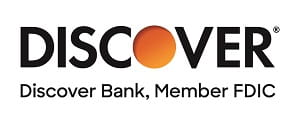A private student loan is a credit-based loan, similar to an auto or home loan.
Credit History
Your credit history is a record of how timely you have been in paying back money you have borrowed. It's a record of your past and current borrowing behavior and how you've repaid that money.
Credit Score
Credit scores called FICO® scores are numerical indexes based on an algorithm developed by Fair Isaac Corporation. Credit scores attempt to predict the likelihood that a borrower will repay a loan on time.
To have a credit score, you need at least one account that's been open for six months or longer and at least one account that's been reported by a credit company in the last six months. FICO scores range from 300 to 850 and are reported, along with credit history, by the three major credit companies: Equifax, Experian, and Transunion. Consumers with higher scores are considered better credit risks.
Factors that Increase Your Credit Score
- Making all payments on all debts on time and in full
- Low debt-to-income ratios
- Low credit utilization (ratio of loan balances to loan limits)
Factors that Lower Your Credit Score
- Late payments, especially serious delinquencies (90+ days late)
- Defaulted loans
- Bankruptcy discharges
- Foreclosures
- Repossessions
- Tax liens
- Wage garnishments
- Very high debt-to-income ratios
How Credit Impacts Private Student Loans
Credit history and score determine:
- Whether the borrower is approved for the loan
- What interest rates the borrower qualifies for
Each lender has its own criteria for approving loans and setting interest rates. There is no single minimum score that will guarantee loan approval.
Options for Students with Bad Credit
If you have a low credit score, you have several options that can increase your chances of getting approved for a private student loan:
- Apply with a creditworthy cosigner
- Improve your credit score and reapply in the future
Steps to Improve Your Credit Score
- Get a free copy of your credit report at AnnualCreditReport.com. You are entitled to one free copy from each of the three credit companies annually. Please note, your credit report does not include your credit score.
- Look for errors and contact the credit companies to make corrections. You have the right to dispute information in your credit report and provide evidence to support your dispute.
- For any negatives, work to fix them over time by bringing any delinquent accounts up to date, making all payments on time, and paying off debts as quickly as possible.
Learn More About Private Student Loans
Best Private Student Loans for April 2024
Private Student Loan Interest Rates











